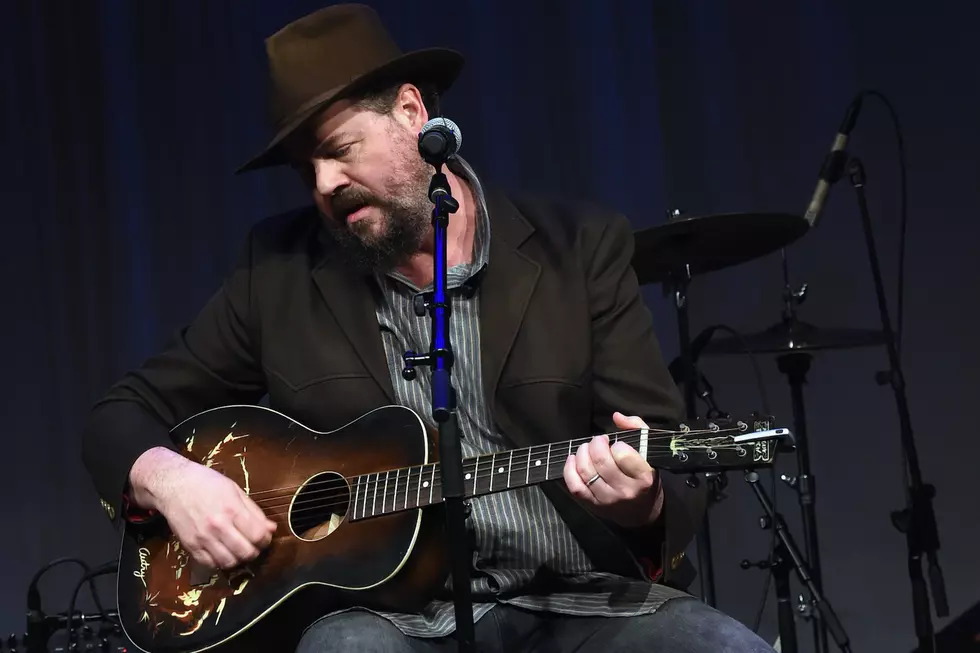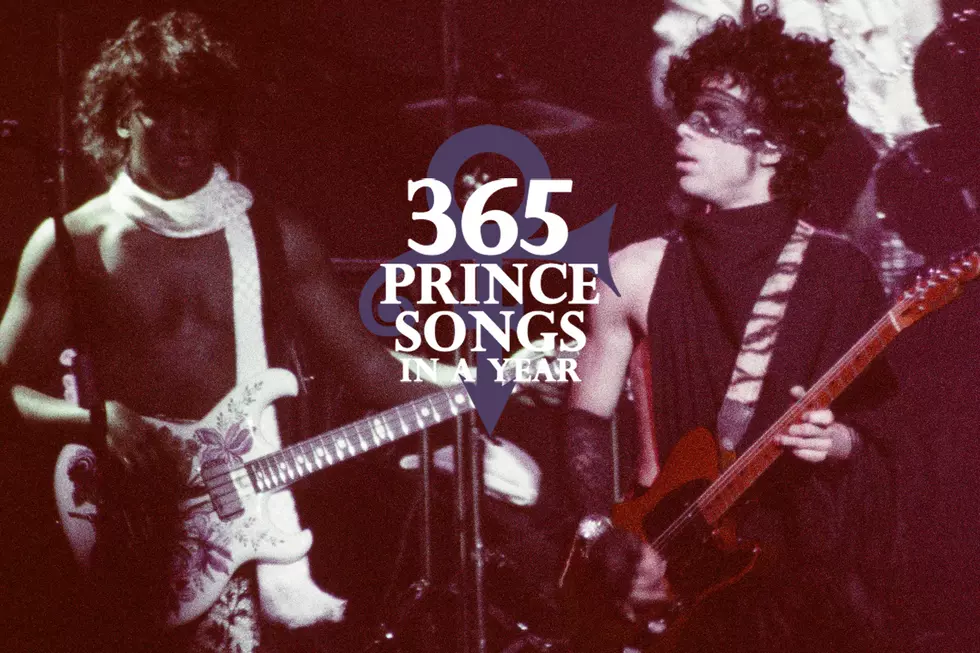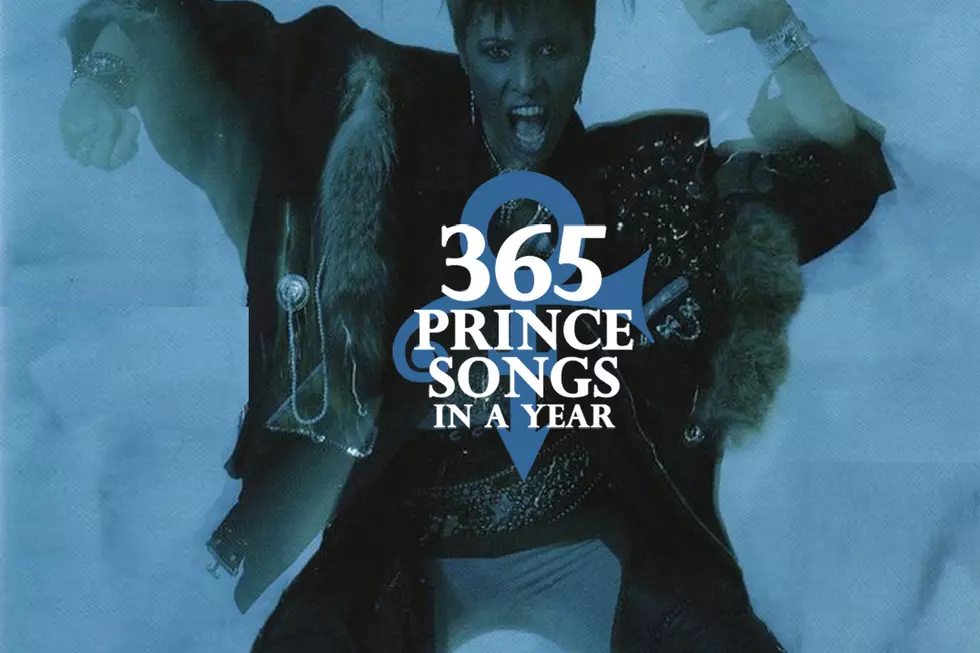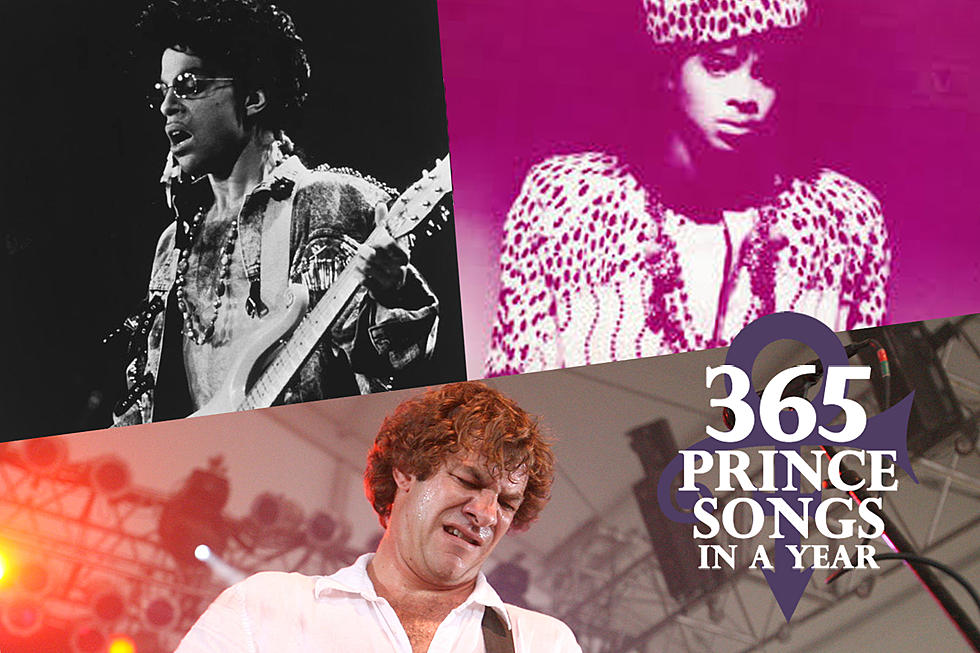
Alejandro Escovedo on Working with Peter Buck, Writing Personal Songs and Experiencing Punk’s Heyday: Exclusive Interview
Alejandro Escovedo was there – not as a bystander, but as a player.
His first band, the Nuns, opened for the Sex Pistols the night they imploded on stage. He became part of the New York punk scene in the late ’70s, living in the Chelsea Hotel, a peer of Sid Vicious, Nancy Spungen, Joey Ramone and others. He moved to Austin, Texas, in the ’80s, helped kickstart cow-punk, was encouraged to write songs by Townes Van Zandt and Joe Ely, and earned pearls of wisdom from former Faces Ronnie Lane and Ian McLagan. Oh, and his brothers were in Santana and his niece is Sheila E.
After stints in a few groups, Escovedo struck out as a solo artist in 1992. As a songwriter and band leader, he blended his punk past with a rock ’n’ roll soul, creating more of what Gram Parsons would have called “cosmic American music” – twang and bang, distorted guitar played against mournful strings. He wrote songs about not just heartbreak, but “Five Hearts Breaking,” exploring his separation from his wife and her subsequent suicide, coaxing beauty out of loss on solo discs such as Gravity and Thirteen Years.
As his career continued, he worked with some of rock’s greats, including peers (Chris Stamey of the dB’s, Jon Langford of the Mekons, Chuck Prophet and Ryan Adams) and legends (the Velvet Underground’s John Cale, David Bowie producer Tony Visconti). Bruce Springsteen and the E Street Band learned one of his songs to play it with him before a giant crowd. Along the way, Escovedo endured more hardship, from a bout with hepatitis C that brought him near death in the early ’00s to a round of PTSD that preceded his most recent album, Burn Something Beautiful.
No stranger to collaboration, Escovedo worked with R.E.M.’s Peter Buck and the Minus 5’s Scott McCaughey on the record, crafting a hard-charging experience that mixes glam crunch (“Shave the Cat”) and alternative rock murk with songs about his life. Burn Something Beautiful finds him investigating trauma and hurricanes, but also his punk years and advice from some of rock’s old-timers.
Now in his mid-’60s, the man who once wanted to be a filmmaker remains a rock ’n’ roll troubadour. He’s a survivor, bashing out his songs and telling his story on stages around the world. He has the ferocity of a performer a third his age, but the experience of a music veteran. Escovedo is currently touring Europe, backed by Italy’s Don Antonio (he says he might make a record with them) burning something beautiful each night.
In Zürich, we spoke with Escovedo about making his new album, why he has given up performing certain songs and how it is to work with musicians he reveres as “masters.”
In the past three months, you’ve toured with three different bands – the group of Buck, McCaughey and the folks with whom you made Burn Something Beautiful, then your regular touring band, and then Don Antonio. Does playing with different groups illuminate new corners of your songs?
Yeah, because, for instance, Peter Buck and John [Moen] and Scott and Kurt [Bloch] have a particular kind of personality as a group. Theirs is kinda noisy, it has a lot of personality, the group. The group that I have at home is a great band, we have a great guitar player. But it’s also very different. It doesn’t quite have the stage presence of Peter Buck… I mean, they’ve all been on stage all their lives. And then this band [Don Antonio] is really interesting, because they’re Italian. It has more of a Latin feel to it. It seems to swing a little more, which I love. And they grew up listening more to black music than punk rock. I love that part of it. I’ve always wanted that in my music and always had a difficult time finding it.
What was the impetus for collaborating with Buck, McCaughey et al. for Burn Something Beautiful? It came after three releases on which you worked with Tony Visconti and Chuck Prophet.
I think that after three, the focus seems to become a little confused and maybe everyone’s thinking of other things. I know, in Tony’s instance, he had found out he was going to work with Bowie again. So I can understand why his attention was elsewhere. And also, my third album [2012’s Big Station] with Tony wasn’t as focused – I wasn’t in the right place, necessarily, to make that third record.
I took four years before I made my next record. And a lot of it had to do with personal issues. And a lot of it had to do with just the time for me to figure out what it was I wanted to say on the record. I think that life experience in these five, four years, dictated what the record was gonna be. Also, originally the plan was to make that record with Los Lobos. But because of scheduling, it just became impossible. Once I abandoned that idea, I started to tour with Peter Buck and his band. And we just got along great. With each experience, there’s new characters, there’s a new screenplay to be written out.
Watch Alejandro Escovedo and Peter Buck Perform "Horizontal"
You didn’t just record the new album with Buck’s band, you also co-wrote the songs with Buck and McCaughey. For the early part of your solo career, you mostly wrote alone. What’s the biggest difference between collaborative and solo songwriting?
You know, writing alone is… well, it’s lonely. [laughs] You can really get lost in your own kind of world. I think that what happened after writing so many records on my own, I wanted to get away from myself for a while. I remember that when I began to write with Chuck, it’s because I had a concept, this idea that I would tell this story of my life in bands. I remember trying to write it on my own and not getting anywhere. And then, Chuck and I were on tour together and I presented the idea. It turned out to be the right place, right time for both of us.
I’m comfortable writing with other people, I’ve always loved collaborating. So it’s not a stretch for me, but I think there’s also a need. I’ve had more and more people tell me they want me to go back and write by myself.
Why is that?
I don’t know. I think that a lot of it is maybe because, in the beginning, I spoke a lot about the situations and life experiences I had had. Which, some of them seemed, maybe, tragic in a way, and I think a lot of people thrive on that sometimes. They want that. And personally, I wanted to get away from it. Because I didn’t want to revisit those places all the time.
They say that writers experience everything twice – once when it happens and once when they write about it. But for songwriters/performers like yourself, that can become every time you take the stage. When you’re singing some of these songs, do you experience the moment again? Or does it create a new moment?
You know, there was a lot of times in the beginning – when I began writing songs for my first solo record, which were based around something that had happened in my life that was devastating. I remember, after a while, I couldn’t sing them anymore, because I felt I was doing an injustice to the event itself, by presenting them to people who were there to drink and meet other people or whatever. Not necessarily to take part in the same experience that I was feeling. I felt that I was kind of cheating that. Or dishonoring it, in a way. And so I stopped doing it.
But it’s always been hard for me to write outside of my own experiences. So I do live them sometimes. And sometimes they are difficult, and sometimes they’re exhilarating. They kind of inspire me to go on, and move on and to keep writing. So it’s a little of both, really.
When you were writing the songs for Burn Something Beautiful, were you thinking about how the finished tracks would sound? Or do you wait for recording to spend energy on that?
I think that with Peter and Scott, I knew their band well enough. We’ve known each other since the early ’80s, so I knew them and their aesthetic very well. I knew exactly what I was gonna get when I made a record with them. And really, it brought something out in me that was lying dormant for a long time. Which is that early, “Get an electric guitar out, let it feedback, let it roar,” kind of feel that I love very much, but had kind of lost in my music. I think “visceral” is the word that keeps popping up when people talk about this record.
Watch Alejandro Escovedo Perform "Suit of Lights"
Who had the idea to bring Kelly Hogan in on backing vocals? She’s the record’s secret weapon.
She’s always been part of my life, because I was on Bloodshot Records. She worked at Bloodshot. She was my personal press person. So we spent a lot of time together. I always encouraged her to write. I always thought that she was an incredible, beautifully gifted person and her voice … it’s amazing. I love her very much. And Scott and Pete knew her very well. As soon as her name came up, it was like, [snaps fingers] “perfect.”
In two of the first three songs on Burn Something Beautiful, you sing the phrase, “That’s alright.” Are you trying to reassure yourself? Is this a hope, a prayer?
It’s almost like a chant. It’s almost like … it’s just an affirmation that everything is OK. Everything is alright. No matter what we go through, what I go through in each song, it’s OK. The depression, the darkness and the light – it’s all … good, you know? I learn from all of them, the experiences.
Another collaborator of yours, Bruce Springsteen, has talked about his body of work as a conversation with his audience. When you begin a new project, are you conscious of how it fits in with your discography, or are you just in the moment?
I’m more in the moment. I think for someone like Bruce, who has such a vast audience to speak to, it’s different. For me, I don’t see it that way. I’m in the moment. And this is where we’re at, at this point. I just kinda nurture that. But I understand the need to speak universally to people, in your writing. I try to do that.
I remember I had a film teacher who told me to begin with your family, and your family experience, because it was such a universal thing. And I know that love songs, even though Joe Strummer said at one point, “We’ve had enough love songs,” I think that everything that is beautiful about the Clash is about love. And everything that is beautiful about my music is also about love.
There’s a different kind of love on the song, “The Beauty and the Buzz.” You sing, “Play the guitar, son / You’ll always have a friend.” Is that you giving advice or was that advice given to you?
That’s me getting advice from Ronnie Lane. Ronnie Lane used to tell me that, because his father told him that. And I thought that was one of the most beautiful things he ever said to me. And then, [the song] says the romance never ends. I think that love for music and guitar and friendship and conversation is always there. That’s why I put that line in there.
Listen to "Beauty and the Buzz"
The line is an interesting counterbalance to the song that comes before, “I Don’t Want to Play Guitar Anymore.” Buck had the initial idea for that song, correct? What attracted you to that concept?
The way I related to it, when I was sick, when I was very ill, I didn’t play guitar for a year. I dealt with hepatitis C for many years, and when my body really broke down, I was in a position where I could no longer tour or play. I was on my deathbed, basically. I went through this period of time where I blamed the music and the lifestyle for the position I was in physically. And so I didn’t pick up my guitar for a long time. You go through these periods, like a roller coaster of guilt and anger and blame. You wonder why the guys who were next to you drinking just as much and doing everything, maybe even more so – why it didn’t happen to them, but it happened to you. There was a time when I didn’t play my guitar and it was because of rock ’n’ roll.
At the end of this record, on the song “Thought I’d Let You Know,” you sing, “We’re not alone / We’re all alone.” It recalls the contradiction of some of your other lyrics: “It’s so funny / It’s never funny.” “It makes no sense / It makes perfect sense.” What does this pattern say about your songwriting?
I’m not sure. I don’t know how to answer that. It’s just that life is like that, too. I think life in general, you have good days and bad days. You have days that are perfect. You have days that are very imperfect. I’ve always felt part of something. And yet I’ve felt very isolated from things too.
For instance, I come from a very large family. But I always felt very alone in my family. Twelve kids, I’m the seventh child. You get kind of lost in the mix when you’re the seventh child. I always wanted my mother’s approval, and I always found it very difficult to get her approval. You know, you feel great love for your family, but sometimes it’s a very messy situation that I wanted to get away from. I left home when I was 15, so family has always been something that I desired, and yet it was always kind of difficult.
And in a family full of musicians, that wasn’t even going to let you stick out.
See that’s the thing! I didn’t start playing guitar until I was 24 and a lot of it was because my older brothers were amazing musicians. I knew I wasn’t going to get my parents’ attention doing that. I had to find something else. And a lot of it was being a juvenile delinquent.
Listen to "Johnny Volume"
You also write about your days in the New York punk scene on the song “Johnny Volume.” On your last few records, you’ve written a few songs about that era. Why are you continually drawn to it?
I think because they were such great days for me. They were such wonderful times. I was discovering so much. And I was able to, you know, see bands that I thought I’d never see in New York. I saw Nico, with Lester Bangs whispering lyrics to her from the side of the stage that she had forgotten. I saw bands like Wire. And got to know them because I was playing with Judy Nylon, who had lived in London during the birth of punk rock and knew everybody. They were really exciting times, where Sid and Nancy, they were our neighbors, living in the Chelsea Hotel. I’ve been very fortunate to live in these cities and places at the dawn of things and at the end of things, as it were.
The end of Austin, Texas, where we moved to in 1980, it was an amazing place with amazing songwriters that are no longer there and Austin is not nearly the same. So I cherish those days. I don’t cling to them. I know that they’re gone. I don’t expect it ever to happen again. I don’t try to express that they’re better than times now or anything, but I love it.
Specifically for you, what made that time special enough to celebrate in your music?
Well because I got to see it as part of it, not necessarily as a fan or an observer. I was actually in there and I was alongside Johnny and Joey and Dee Dee [Ramone] and all those people, and I just loved them very much. And I miss a lot of them.
Do you find it difficult to balance being a fan and an artist?
I don’t think that I’ll ever get past being a fanboy, quite honestly, I really don’t. I remember John Cale told me once, “You have to stop acting like we’re your heroes.” And I said, “Well, I can’t. I never will. It’ll never happen.” He goes, “You’re a peer.” And I say, “No, I can’t accept that. I’m honored by your suggestion, but I really can’t do it.”
I just see those people as masters. If you were a young Buddhist monk, you look at your Rinpoche as a teacher and you’re always honored by his presence. And I’m always honored by the presence of those records and those writers and those people.
33 Alternative Rockers Who Went Country
More From Diffuser.fm









